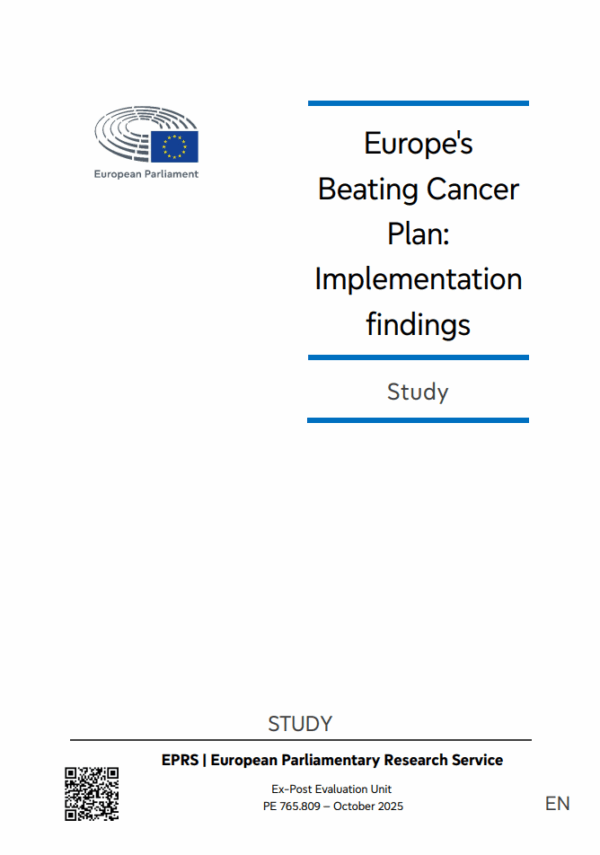Authors: Giuseppe Mazziotti and Felice Simonelli
Series: CEPS Commentary
Introduction
In a communication to the Parliament and the Council entitled “Towards a modern, more European copyright framework” and dated 9 December 2015,1 the European Commission confirmed its intention to progressively remove the main obstacles to the functioning of the Digital Single Market for copyrighted works. The first step of this long-term plan, which was first announced in Juncker’s Political Guidelines2 and the Communication on “A Digital Single Market strategy for Europe”,3 is a proposal for a regulation aimed at ensuring the so-called ‘cross-border portability’ of online services giving access to content such as music, games, films and sporting events.4 In a nutshell, the proposed regulation seeks to enable consumers with legal access to such online content services in their country of residence to use the same services also when they are in another member state for a limited period of time. On the one hand, this legislative proposal has the full potential to resolve the (limited) issue of portability, which stems from the national dimension of copyright and the persisting territorial licensing and distribution of copyright content.5 On the other hand, as this commentary shows, the ambiguity of certain important provisions in the proposed regulation might affect its scope and effectiveness and contribute to the erosion of the principle of copyright territoriality.
Aim and scope of the proposed regulation
From a legislative perspective, it is remarkable that, for the very first time in the history of EU copyright law, the Commission is proposing a regulation instead of a directive. The assumption is that the concrete dismantlement of national barriers in the European digital environment – at least for a genuinely cross-border issue such as portability – can only be achieved at EU level through an instrument ensuring the application of identical rules on a pan-European basis. The legislative proposal is explicitly based on Article 114 TFEU, which allows the EU to enact measures whose purpose is that of ensuring the establishment and functioning of the Internal Market, also in the domain of online services. As mentioned, the regulation aims at enabling subscribers of portable online services that provide access to music, games, films, sporting events, and TV broadcasts to enjoy these services also when they happen to be, for a limited time, in an EU country other than their member state of residence. The services whose ‘cross-border portability’ should be guaranteed, according to the Commission’s proposal, are the ones provided for payment of a service fee or those rendered without payment of money on the condition that the provider verifies the member state where the subscriber habitually resides.
The mechanism on which the regulation relies is a rather simple legal fiction and aims at restricting the effects of the principle of territoriality of copyright by expanding the territorial scope of licenses that are (still) granted on a rigid country-by-country basis, especially in the audio-visual and premium sports content sectors. In fact, the regulation provides that the supply, access and use of an online content service should be deemed to occur only where the subscriber resides, and not in the member state where the subscriber is ‘temporarily present’. For example, if a subscriber of Netflix in the UK travels for a limited number of days to Spain or Germany, the online films streamed by this subscriber when she is in e.g. Madrid or Berlin will have to be considered, from a legal point of view, as having been streamed in the UK. This means that a service provider acquiring the rights to exploit certain works online in a given EU country (e.g. the UK) would have these rights automatically extended – by mere operation of the regulation – to the countries where its subscribers would happen to be ‘temporarily present’ (e.g. Spain or Germany). Interestingly, the regulation is designed to have retroactive effects and to make contractual terms contrary to the above-mentioned mechanism unenforceable.
Unsettled issues
Unfortunately, as anticipated above, this legislative proposal embodies a number of unsettled issues. The text, as it stands, provides limited guidance on how to interpret and implement the decisive requirement of ‘temporary presence’ and how service providers should ascertain the member state in which a subscriber habitually resides. In principle, according to Article 2 of the regulation, ‘temporarily present’ means a presence in a member state other than the subscriber’s country of residence. In this respect, verification mechanisms do matter. As clarified in the preamble of the regulation and in the Impact Assessment (IA) accompanying the proposal,6 while self-declaration would not be enough, what should be required as proof of residence is information such as banking details, the payment of a licence fee for other services provided in the member state of residence or the existence of a contract for Internet or telephone connection or the subscriber’s IP address.7 Interestingly, reliance on other contracts would allow expats and more generally consumers owning e.g. an apartment8 or even just a bank account9 in a different member state to surreptitiously benefit from the mechanism envisaged by the regulation for cross-border access to online services. For instance, an Italian relocating to Belgium might still be able to subscribe to Mediaset Premium (by paying the service with his Italian credit card and/or by providing the address of his secondary residence in Italy) and watch UEFA Champions League games on his laptop in Brussels via Premium Play, the portable service of Mediaset. Alternatively, monitoring the IP address would require a definition of the maximum duration of a ‘temporary presence’ abroad. In the absence of such a definition, it is unclear who will have to determine how short the presence of service subscribers in countries other than their country of residence will have to be for the mechanism to operate. Criteria on how to calculate the duration of a stay abroad of service subscribers (e.g. number of days abroad per year, number of days spent in a certain country, number of consecutive days abroad) would also be required.
Possible outcomes
The consequences of this legislative proposal will mostly depend on whether the regulation will be applied strictly or loosely. A strict interpretation would make the new regulation applicable only to short-term migrants, travellers and tourists, in a way that this measure could be viewed as a sort of ‘roaming for Netflix’, whose daily number of beneficiaries would be rather small. In fact, according to the IA, 29 million Europeans would currently benefit from cross-border portability when they travel abroad. Beneficiaries would go up to 72 million Europeans in 2020, in light of the growing demand for online content services and increase in tourism. The IA also reveals that Europeans who travel at least once a year spend on average 11.6 days abroad. Combining these figures, the proposed regulation is expected to affect some 900,000 Europeans per day in 2015 (0.2% of the EU population on a daily basis) and some 2.5 million Europeans in 2020 (0.5% of the EU population).
A loose application of the regulation would instead lead to a significant erosion of the principle of copyright territoriality. If residents of certain countries wishing to access services rendered in another member state, on the grounds of the uncertainty caused by the regulation, were regarded as ‘temporarily present’ in the EU countries where they live and work at the moment, the accessibility of online services on a cross-border basis might be extended to a much broader population. In principle, this would include both Europeans permanently away from their country of origin (14 million in 2014),10 linguistic minorities speaking another EU official language (4 million in 2012)11 and, to some extent, people with adequate foreign language skills (between 90 and 220 million in 2012).12
While deciding whether and how the Commission’s proposal could be amended – especially in relation to the criterion to estimate the ‘temporary’ character of a stay abroad – lawmakers should consider, as revealed by the IA, the very different views and priorities stakeholders have on portability and accessibility of copyright works on a cross-border basis. This means that, if the Parliament and the Council did not fix this flaw of the regulation, a contractual definition of the beneficiaries of service portability would be highly unlikely. The majority of right-holders have an incentive to preserve territoriality in order to maximise their revenues through price discriminating their licensing fees and, in this respect, are concerned by possible problems in determining and monitoring a ‘temporary presence’ in another member state. Such players would require strict authentication procedures to verify the country of residence and limit the duration of the ‘temporary presence’ abroad. Service providers have an interest in making their services as successful and popular as possible and to increase the number of subscribers. Hence, they would overstretch the definition of ‘temporarily abroad’, especially when they operate in one or few EU countries and are not in a position to benefit from price discrimination strategies on a territorial basis. The priority of consumers, instead, would be that of accessing the services they need at the lowest price. Subscribers who frequently travel abroad would certainly prefer contracts including a looser definition of temporariness. As mentioned, contracts subject to less-strict verification mechanisms might become appealing also for EU consumers who are willing to pay for content provided in a member state other than their country of residence.
Concluding remarks
The European Parliament has already expressed, in a non-legislative resolution approving the so-called ‘Reda report’ in July 2015, its firm opposition to the end of copyright territoriality. In particular, the Parliament called for a reaffirmation of copyright territoriality as a principle enabling each member state to preserve the logic of fair remuneration within the framework of its own cultural policy. The resolution also stressed that there is no contradiction between territoriality and the goal of ensuring portability of content.13 In light of this political orientation, it is likely that the Parliament will only approve a legislative text leaving no room for a loose interpretation of the portability exception to territoriality. Therefore, the new regulation might be of little help in creating a Digital Single Market for copyright content, by reason of the modest portion of the population that would benefit from its application.
To conclude, the cautious and piecemeal approach followed by the portability regulation might soon be contradicted by a much broader attempt by the Commission to revisit the principle of territoriality through the enforcement of EU competition law. In this respect, in January 2014, the Commission started a formal antitrust proceeding to examine territorial licensing agreements concluded by several US film studios with the largest European pay-tv broadcasters, which may result in an unlawful partition of the Internal Market under Article 101 TFEU.14 While investigations are still underway for Canal Plus, Sky Deutschland, DTS and Sky Italia, in July 2015 a Statement of Objections was sent to Sky UK and six major US film studios for putting in place contractual restrictions aimed at creating an area of absolute territorial exclusivity in favour of the British broadcaster in the UK and Ireland.15 If this attempt were successful, copyright holders and service providers would no longer be entitled to lawfully restrict access to such services to individual customers residing outside the territory covered by their exclusive license.
The extension of such a decision to the online environment would allow for a generalised cross-border access to online content services and pave the way for an accelerated end to the era of copyright territoriality in the EU digital market. In other words, consumers would be entitled to access online content services available in member states other than their country of residence if they found such services appealing in terms of content offerings and easily accessible with regard to languages, translations and/or subtitles. For instance, in the case of Sky UK, this outcome would be beneficial not only to British and Irish citizens residing in Spain or Italy on a permanent basis wishing to access the same TV services and films made available in their own language to their fellow nationals in London and Dublin. It would also allow Spanish and Italian viewers with adequate foreign language skills residing in Madrid or Rome to access the same content packages in English.
Notes
1 COM(2015) 626 final, Communication from the Commission to the European Parliament, the Council, the European Economic and Social Committee and the Committee of the Regions, “Towards a modern, more European copyright framework”.
2 J.C. Juncker (2014), “A New Start for Europe: My Agenda for Jobs, Growth, Fairness and Democratic Change”, Political Guidelines for the next European Commission (http://ec.europa.eu/priorities/sites/beta-political/files/juncker-political-guidelines_en.pdf).
3 COM(2015) 192 final, Communication from the Commission to the European Parliament, the Council, the European Economic and Social Committee and the Committee of the Regions, “A Digital Single Market Strategy for Europe”.
4 COM(2015) 627 final, 2015/0284 (COD), Proposal for a Regulation of the European Parliament and of the Council on ensuring the cross-border portability of online content services in the internal market.
5 Andrea Renda, Felice Simonelli, Giuseppe Mazziotti and Giacomo Luchetta (2015), “Policy Options for Improving the Functioning and Efficiency of the Digital Single Market in the Field of Copyright”, CEPS Special Report No. 121, CEPS, Brussels, November (www.ceps.eu/publications/policy-options-improving-functioning-and-efficiency-digital-single-market-field).
6 SWD(2015) 270 final, Commission Staff Working Document, “Impact Assessment accompanying the document Proposal for a Regulation of the European Parliament and of the Council to ensure the cross-border portability of online content services in the internal market”.
7 According to Article 5 of the proposed regulation, right-holders are entitled to require the service providers to make use of effective means to verify the country of residence. At any rate, authentication tools have to be reasonable and not go beyond what is necessary to achieve the purpose of the regulation.
8 According to a recent survey commissioned by RE/MAX Europe, while 15% of Europeans owns a secondary residence, 9.2% have such a residence abroad. Hence, up to 7 million Europeans own a house abroad (authors’ own elaboration on data from “At home in Europe”, survey performed in January 2015 and available at: http://www.at-home-in-europe.eu/about).
9 While in 2011, only 3% of EU consumers (approximately 15 million) owned a current bank account in another member state (Special Eurobarometer 373, Retail Financial Services), a recent Green Paper published by the European Commission reveals that digitalisation will play a crucial role in improving cross-border access to financial products in the coming years (COM(2015) 630 final, Green Paper on retail financial services, “Better products, more choice, and greater opportunities for consumers and businesses”).
10 See Eurostat Database – Population on 1 January 2010 by five year age group, sex and citizenship [migr_pop1ctz].
11 Plum Consulting (2012), “The economic potential of cross-border pay-to-view and listen audiovisual media services”, study commissioned by the European Commission.
12 In 2012, 44% of Europeans (about 223 million) were able to follow the news on radio or television in a language different from their mother tongue. Interestingly, 54% (about 274 million) were able to hold a conversation in at least one additional foreign language and 34% of them (about 93 million) regularly used their first other language to watch films and television and to listen to the radio (Special Eurobarometer 286, Europeans and their languages).
13 See paragraph 6 and 7 of the European Parliament resolution of 9 July 2015 on the implementation of Directive 2001/29/EC of the European Parliament and of the Council of 22 May 2001 on the harmonisation of certain aspects of copyright and related rights in the information society (2014/2256(INI)).
14 European Commission, Press release (13 January 2014), “Antitrust: Commission investigates restrictions affecting cross border provision of pay TV services” (http://europa.eu/rapid/press-release_IP-14-15_en.htm).
15 European Commission, Press release (23 July 2015), “Antitrust: Commission sends Statement of Objections on cross-border provision of pay-TV services available in UK and Ireland” (http://europa.eu/rapid/press-release_IP-15-5432_en.htm).
Giuseppe Mazziotti is Professor of intellectual property law, School of Law, Trinity College Dublin. Felice Simonelli is Research Fellow in the Regulatory Affairs research unit at CEPS. CEPS Commentaries offer concise, policy-oriented insights into topical issues in European affairs. The views expressed are attributable only to the authors in a personal capacity and not to any institution with which they are associated.
Available for free downloading from the CEPS website (www.ceps.eu)
© CEPS 2016










